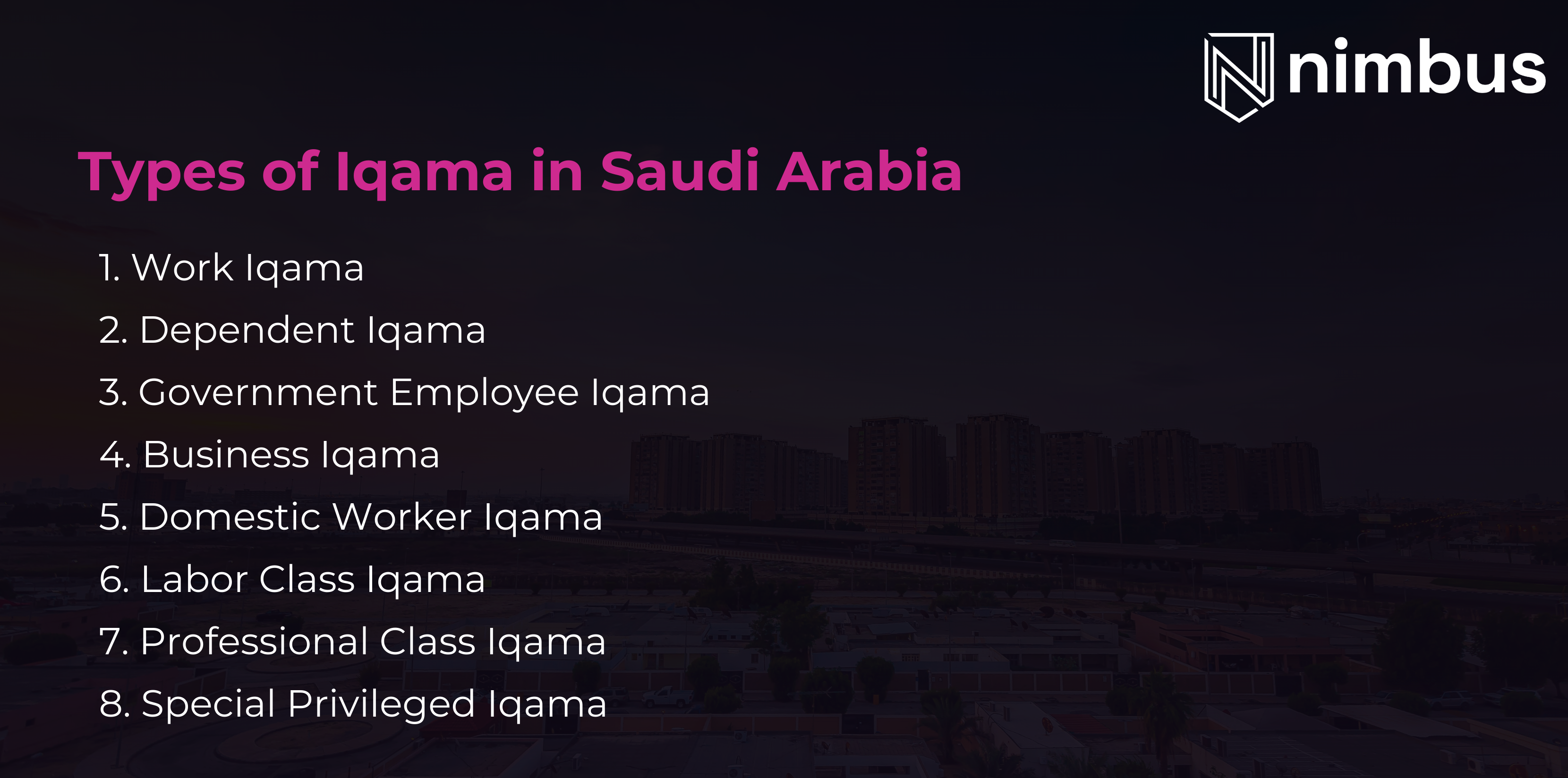Saudi Arabia continues to attract global talent, entrepreneurs, and businesses due to its rapidly expanding economy. But to become a part of this growing economy, you will need Iqama.
Whether you are a foreign investor, working professional, or business owner, securing an Iqama (Saudi residence permit) is a mandate to living and working in the Kingdom legally.
For such aspiring people, this post provides an in-depth understanding of the different types of Iqama, the application process, and its benefits like allowing expatriates to live in the country without a sponsor.
– Why Is Iqama Important?
The Iqama is more than just a residency permit; it is the key to accessing essential services and opportunities in Saudi Arabia. Whether for employment, business, or family purposes, an Iqama is required to:
- Legally work and reside in Saudi Arabia.
- Open bank accounts and apply for loans.
- Access healthcare and education for dependents.
- Apply for a driver’s license and utility services.
- Travel in and out of the country with re-entry permits.
For investors going for business incorporation in Saudi Arabia, obtaining an Iqama is crucial for setting up a local presence and facilitating long-term operations.
– Types of Iqama in Saudi Arabia
The Saudi government has various types of Iqama based on the applicant’s status and purpose of stay. These include:
1. Work Iqama (Employment Residency Permit)
This is the most common type of Iqama, issued to foreign employees working under a Saudi company. The employer acts as the sponsor and is responsible for processing the work permit.
2. Dependent Iqama (Family Residency Permit)
Issued to spouses, children, and other dependents of expatriate workers, allowing them to live in Saudi Arabia. Dependents cannot work unless they secure a separate work permit.
3. Government Employee Iqama
This is granted to foreign nationals employed in Saudi government sectors. Unlike private sector employees, government workers have different sponsorship rules.
4. Business Iqama
Designed for entrepreneurs and investors looking to start or expand their businesses in Saudi Arabia. This permit allows business owners to operate legally in the country.
5. Domestic Worker Iqama
Issued to household staff such as housemaids, drivers, and cooks, who are employed under a Saudi sponsor.
6. Labor Class Iqama
This is granted to manual laborers working in construction, maintenance, and other industrial sectors.
7. Professional Class Iqama
Reserved for highly skilled professionals, including doctors, engineers, and IT specialists. Applicants must hold a university degree and be employed in a registered company.
8. Special Privileged Iqama (Saudi Premium Residency)
A prestigious residency program for investors, entrepreneurs, and high-skilled professionals, allowing them to live in Saudi Arabia without needing a local sponsor.
– The Iqama Application Process
The application process for obtaining an Iqama involves several steps. Typically, the employer or sponsor is responsible for handling the formalities.
Step 1: Secure a Work Visa
Before applying for an Iqama, foreign workers must obtain a work visa. Employers must apply for a Block Visa from the Ministry of Human Resources and Social Development.
Step 2: Medical Examination
Upon arrival in Saudi Arabia, expatriates must undergo a mandatory medical test to ensure they are free from infectious diseases.
Step 3: Iqama Application Submission
The employer submits the necessary documents, including:
– Passport copy
– Work visa
– Employment contract
– Medical report
– Biometric data (fingerprints and photo)
Step 4: Payment of Fees
The employer is responsible for paying the Iqama issuance fees, which vary based on the profession and company size.
Step 5: Issuance of Iqama
Once approved, the Iqama is issued within a few weeks, and the employee can begin working legally.
It must be noted that employees must apply for an Iqama within 90 days of arrival to avoid fines.
How Iqama Supports Business Incorporation in Saudi Arabia?
For businesses and investors, securing an Iqama is a crucial step in business setup in Saudi Arabia. It allows foreign business owners to:
- Register a company and obtain necessary trade licenses.
- Hire employees and sponsor expatriate workers.
- Open corporate bank accounts and access financial services.
- Expand operations across the Middle East region.
Saudi Arabia has implemented business-friendly policies to make it easier for foreign companies to establish a local presence.
Get Your Saudi Iqama
Whether you are a professional, investor, or entrepreneur, obtaining an Iqama is essential for living and working in Saudi Arabia. With options ranging from standard work permits to the Saudi Premium Residency Program, expatriates have multiple options to residency based on their goals and financial status.
Understanding the Iqama process and selecting the right residency option will ensure a smooth transition and allow expatriates to fully enjoy the benefits of working and living in one of the fastest-growing economies in the world. But always ensure your Iqama is renewed on time to avoid fines or legal complications.




